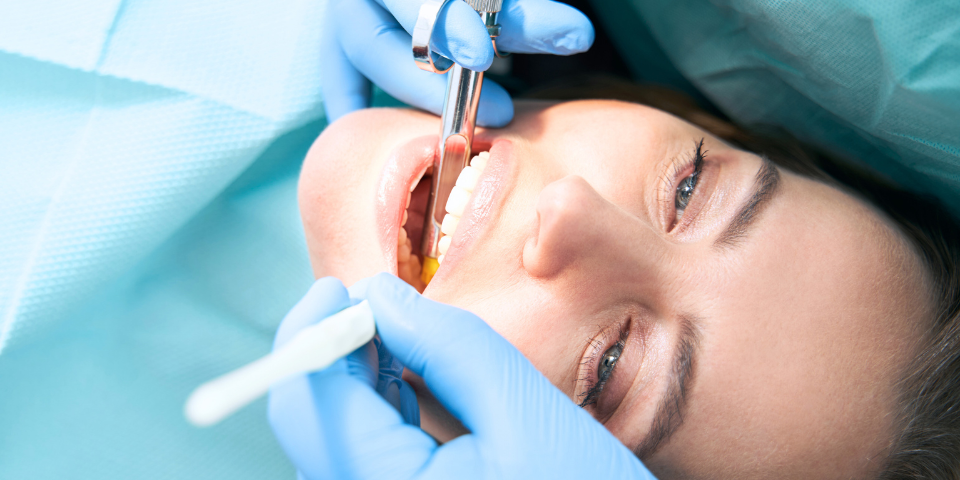
Why Is It Important To Keep Your Teeth Clean?
May 28, 2024
Does Botulinum Toxin Help With TMJ Syndrome?
September 30, 2024Key Takeaways:
Understanding the Importance of Dental Sedation:
Dental sedation plays a crucial role in ensuring patient comfort and effectively managing dental anxiety, making it essential for both patients and professionals to understand the various methods available.
Variety of Sedation Methods:
There are several sedation options, including oral sedation, inhalation sedation, intravenous sedation, and general anesthesia, each tailored to different levels of anxiety and procedural complexity, providing flexibility in patient care.
Balancing Benefits and Risks:
While dental sedation offers significant advantages in improving patient comfort and reducing anxiety, it is important to carefully evaluate the benefits and risks of each method to ensure patient safety and optimal outcomes.
Are you feeling anxious about your next dental appointment? You’re not alone! Many people experience nervousness when it comes to dental visits. That’s where dental sedation comes in—it can help make your experience a lot more comfortable.
Imagine feeling at rest when you arrive at your dental visit, knowing that there are solutions available that will ease your fears and lessen your discomfort. Discover the several techniques for dental sedation, ranging from oral sedation to general anesthesia, with the help of this guide. If you’re looking for dental sedation, we’ll go over each option’s operation and evaluate the pros and cons to assist you decide which is ideal for you.
The Role of Dental Sedation Explained
Dental sedation is intended to make your visit easier and more comfortable by treating frequent sources of anxiety and discomfort. Consider dental sedation as a bridge to a more peaceful dental experience. It provides a variety of alternatives to help folks who are concerned about dental operations feel more at ease. The available alternatives differ in terms of depth and efficacy.
Dental Sedation and Anxiety Management
Dental anxiety is a common experience that unfortunately affects many when it comes to visiting the dentist. This anxiety can stem from various sources, including fear of pain, past negative experiences, or even the sounds and smells associated with dental offices. Our approach is that understanding the psychological aspects of dental anxiety is necessary for creating a supportive environment for patients.
For some, dental anxiety may lead to avoidance of necessary dental care, which can result in more significant oral health issues over time. This cycle of fear and avoidance can create a negative feedback loop, where the anxiety grows, and dental health deteriorates, further intensifying the fear of future visits.
By using medication to induce a state of relaxation, sedation allows patients to undergo necessary treatments without the overwhelming fear that often accompanies dental visits. When patients are relaxed, they are more likely to have a positive experience. This can contribute to a shift in perception about dental visits, making them feel less threatening and more manageable.
Types of Dental Sedation
There are several sedation options available in dentistry, each aimed at helping patients feel more at ease. Whether someone is dealing with mild anxiety or needs full sedation, there’s a choice that can make their dental experience more comfortable. Let’s explore each:
Oral Sedation
So, let’s talk about oral sedation. This method involves taking a sedative pill before your dental appointment, and it’s a popular choice for many patients who experience anxiety about their visits.
When you take the pill, it usually starts to work within about 30 to 60 minutes. As the sedative kicks in, you’ll begin to feel more relaxed and at ease. Some people describe the sensation as a gentle wave of calm washing over them. It’s not like you’ll be completely unconscious; instead, you’ll be in a state where you’re drowsy but still awake and responsive.
One important thing to keep in mind is that because the sedative can make you feel quite drowsy, it’s really a good idea to have someone with you. You’ll want a friend or family member to drive you to and from your appointment. This way, you won’t have to worry about feeling groggy afterward or navigating your way home on your own.
Also, before your appointment, your dentist will likely give you some specific instructions. They might recommend that you eat something light before taking the sedative, but they’ll also advise you not to eat too close to your appointment time.
Inhalation Sedation
The perk of nitrous oxide is how quickly it works. You’ll start to feel its calming effects almost immediately, and once the procedure is done, the dentist will simply stop the flow of nitrous oxide. You’ll breathe normal oxygen for a few minutes, and before you know it, the effects wear off, allowing you to return to your day without any lingering drowsiness.
In contrast to oral sedation, since you’re fully awake and alert after using nitrous oxide, you won’t need a ride home. You can drive yourself or carry on with your day as planned, making it a convenient option for many patients.
Intravenous Sedation
An intravenous line is used to inject sedative drugs straight into your bloodstream during IV sedation. This method gives you some versatility, which is very useful for different kinds of dental work.
Once the IV is set up, the sedative begins to take effect almost immediately. Because it goes directly into your bloodstream, you’ll feel relaxed and calm quickly, which is especially helpful for those who experience severe anxiety about dental visits for example.
One of the standout features of IV sedation is the ability to adjust the level of sedation on the fly. If at any point you feel too drowsy or, conversely, if you need a bit more relaxation, the dentist can easily modify the amount of medication being administered. During the procedure, dental staff will closely monitor your vital signs and overall comfort level.
General Anesthesia
Complex surgeries such as jaw realignment, multiple extractions, or extensive restorative work may require general anesthesia to ensure the patient remains still and pain-free throughout the process.
Also, for patients who experience extreme anxiety about dental work and cannot tolerate lighter sedation options, general anesthesia can provide a solution that allows them to receive necessary care without the stress of being aware of the procedure.
Before administering general anesthesia, your dentist will conduct a thorough evaluation, including a review of your medical history, medications, and any allergies. This assessment helps ensure your safety during the procedure.
After the procedure, you’ll be moved to a recovery area where healthcare professionals will monitor your awakening from anesthesia. As the effects begin to wear off, you may feel groggy and disoriented. This is perfectly normal and expected!
Benefits and Risks of Dental Sedation
Dental sedation can be a valuable tool for patients undergoing dental procedures, helping to alleviate anxiety and discomfort. However, like any medical intervention, it comes with its own set of benefits and risks. Understanding both can help you make an informed decision about whether sedation is the right choice for you.
Advantages:
Besides alleviating anxiety, sedation can enhance pain control during procedures, too. While local anesthetics are used to numb specific areas, sedation can help minimize any discomfort or pain, making the overall experience more bearable.
Another benefit is that sedated patients are often more cooperative and less fidgety during procedures. This can make it easier for the dentist to work efficiently, resulting in quicker treatments. Of course, with patients being more relaxed and cooperative, procedures may take less time.
We at Langley Dental Care Offer Dental Sedation Solutions
Schedule an appointment at Langley Dental Care! We understand that some patients need additional support to feel at ease during their dental visits. Our team is trained to provide various levels of sedation, ensuring that your experience is as comfortable as possible. Whether you are coming in for a routine check-up or a more complex procedure, we are here to help manage any anxiety and make your time with us pleasant!


